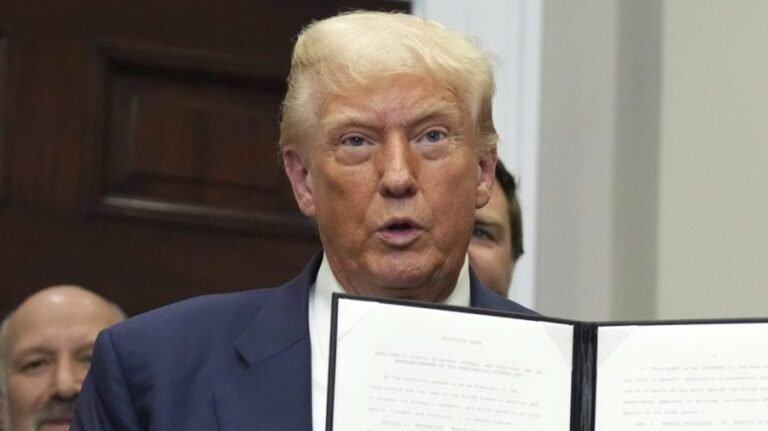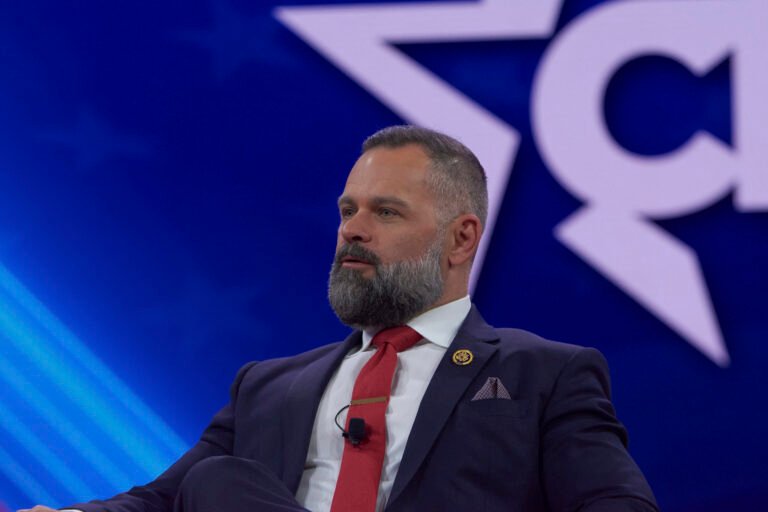
As the Trump administration heads into a third stage of nuclear talks with Iran, the contours of a major missed opportunity are emerging. Trump — who in 2018 torpedoed the Obama-era nuclear deal — now seems to want something strikingly similar. Despite some threats and hints of toughness, Trump appears far more interested in striking any deal than using the opportunity to finally bring the Islamic Republic to heel.
Worse, he is suggesting that if force is needed, Israel should take the lead. This is a profound strategic error.
Iran’s nuclear program is no longer a theoretical threat. The regime is enriching uranium to 60% — a stone’s throw from weapons-grade — and possesses enough fissile material for multiple bombs, according to credible intelligence course. It continues to prevent inspections, advance centrifuge technology, and shield operations in underground facilities designed to survive airstrikes. While Tehran insists its intentions are peaceful, its actions betray a clear drive toward nuclear capability.
This is happening at a moment of vulnerability for the regime. Its proxies — Hamas, Hezbollah, the Houthis — have been hit hard since the war that Hamas launched on Oct. 7, 2023. So have Iran’s air defenses, significantly degraded by Israel last fall in its response to history’s biggest ballistic missile attack (though Iran claims it has fixed some of this). At home, economic pressure and public unrest are high. Iran’s deterrence is fraying. In this context, a bold U.S. strategy could compel real change — but that would require more than recycled diplomacy.
Trump and his uber-envoy Steve Witkoff, who seems to be running much of the policy and has issued contradictory statements about whether Iran could continue to enrich uranium, are missing a rare opportunity to redefine the terms and put an end to one of the great destabilizing factors on the world state today.
Rather than signaling a return to Obama-era frameworks or outsourcing military action to Israel, the United States should present Iran with an ultimatum: verifiable and irreversible total dismantling of its nuclear and weaponization programs — as well as an end to proxy militias which have sewn misery and chaos all over the region, from Yemen to Iraq to Syria and Lebanon. In exchange Iran might get sanctions relief and normalized trade. No sunset clauses. No ambiguity. No delays.
And there must be a credible military threat behind it – otherwise the Iranian model is by obfuscate, inveigle and always be buying time with endless negotiation straight from the dynamics of the Persian bazaar. The original nuclear talks dragged on for years, giving Iran space to make steady advances that added to its leverage.
Therefore a serious ultimatum must be backed by readiness to strike, decisively and surgically. The priority targets are well known: Natanz and Fordow, the regime’s central enrichment hubs buried under mountains of rock. Destroying them would require the GBU-57 “Massive Ordnance Penetrator,” which only the U.S. possesses. Secondary targets would include the Uranium Conversion Facility at Isfahan, the Arak reactor, and weaponization centers like the one at Parchin. It would also require blinding Iran’s air defenses, disrupting command and control systems with cyber tools, and coordinating with allies to neutralize retaliation.
The U.S. has the means for all this. Israel for only a part. The Jewish state has conducted dozens of precision strikes on Iranian-linked targets in Syria, Iraq, and even Iran itself. But it lacks the payload to reach the deepest bunkers. Worse, a strike led by Israel risks turning the confrontation into a religious or ethnic flashpoint, igniting the Muslim world, distracting from the main issue and undermining regional resolve. A U.S.-led effort, on the other hand, can frame the issue clearly: the world demands nonproliferation and stability.
Trump’s hints that Israel should handle the job are a dangerous abdication. It sends the message that Washington is unwilling to lead — and unwilling to bear the consequences of confronting a threat that affects the entire world. It will embolden Iran, suggesting that the U.S. lacks the will to enforce its own red lines (another odd reminder of Obama, whose vanishing red-line in Syria, on the use of chemical weapons, badly eroded U.S. credibility).
I assess that Trump made a mistake in walking away from the 2015 deal with no Plan B – it merely released Iran from obligations and led it to ramp up enrichment and become a nuclear threshold state, while continuing to sow mayhem throughout the region. But the circumstances are now different, and the moment has come for a decision paradigm shift.
Some argue military action is reckless. But the status quo is riskier. A nuclear or near-nuclear Iran would trigger an arms race in the Middle East, likely prompting Saudi Arabia, Egypt, and Turkey to pursue their own programs. It would shield Iran’s proxy activities from reprisal. And it would mark the collapse of the global nonproliferation regime.
This moment also poses a test of moral clarity. Iran is run by a theocratic regime that oppresses its people and fuels violence across the region. A clear distinction should be made between Iran’s rulers and its citizens. The West must engage the Iranian people, and even potential dissenters within the regime, with a simple message: Your liberation would be welcomed, and a new Iran, non-repressive and non-aggressive, would find open arms.
There is, of course, no guarantee that force would lead to regime change — and that should not be the immediate objective. But the regime must understand that if it compels conflict through stalling or defiance, the consequences could very well include the end of its cataclysmic rule. That message must come from Washington, not Tel Aviv.
Just War Theory — from Augustine to Aquinas — holds that violence can be justified under strict conditions. Just wars must be declared by legitimate authority, for a just cause, proportionally conducted, and as a last resort. These conditions are close to being met.
What’s needed now is not the self-delusion of more drawn-out negotiations, but courage, clarity, and leadership. That means Trump should stop hiding behind Israel and take responsibility for enforcing a world order in which nuclear blackmail is not rewarded. It would also be a decent way of course-correcting in the wider sense for his administration.
Dan Perry is the former Cairo-based Middle East editor and London-based Europe-Africa editor of the Associated Press, the former chairman of the Foreign Press Association in Jerusalem, and the author of two books.


